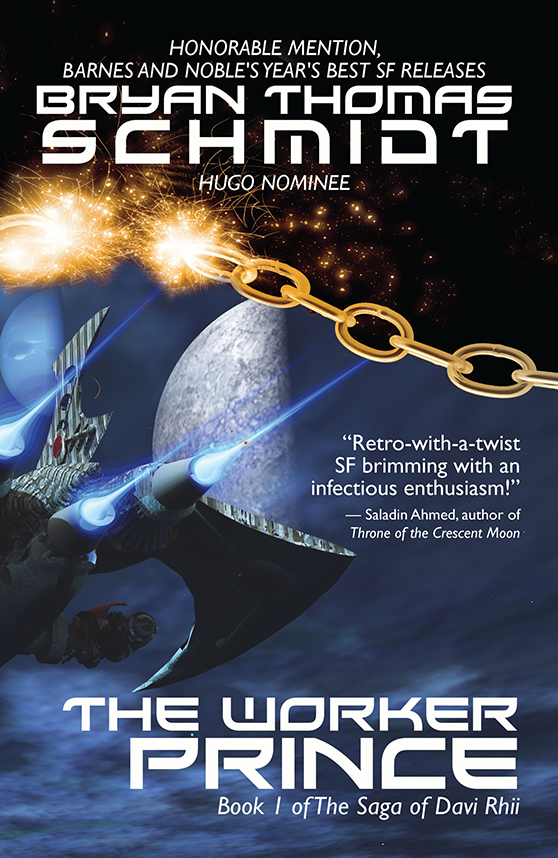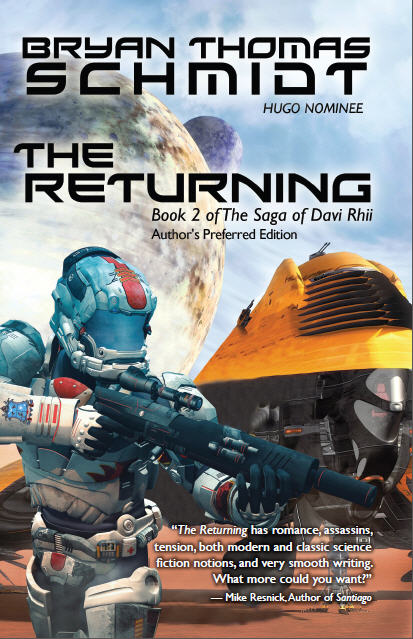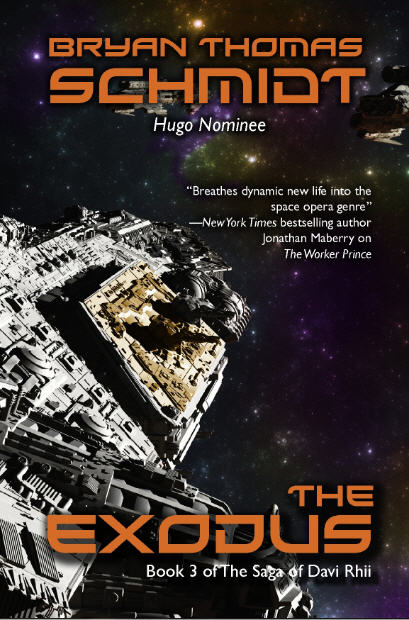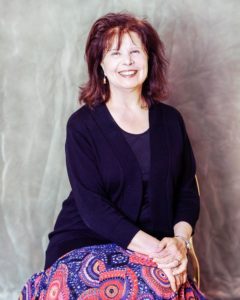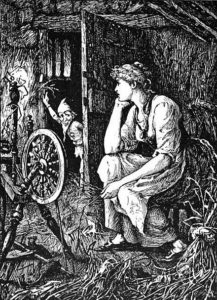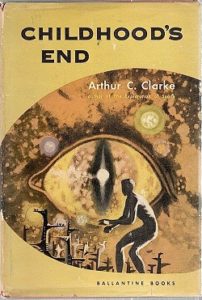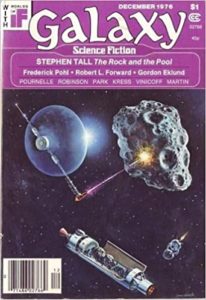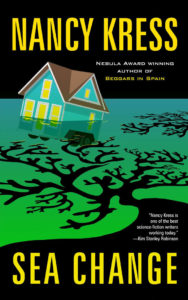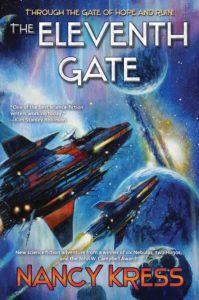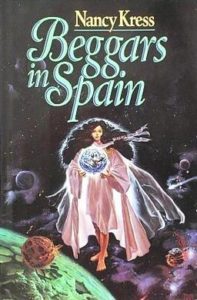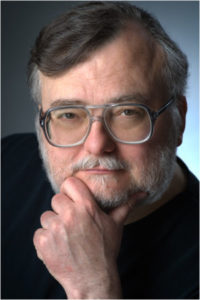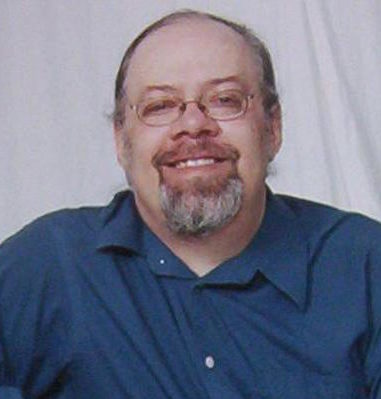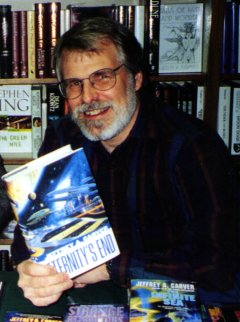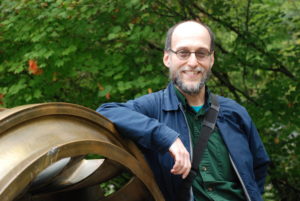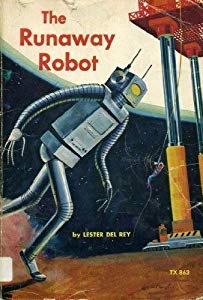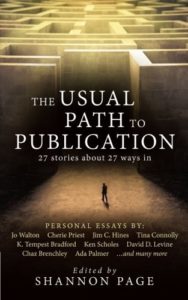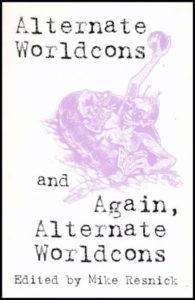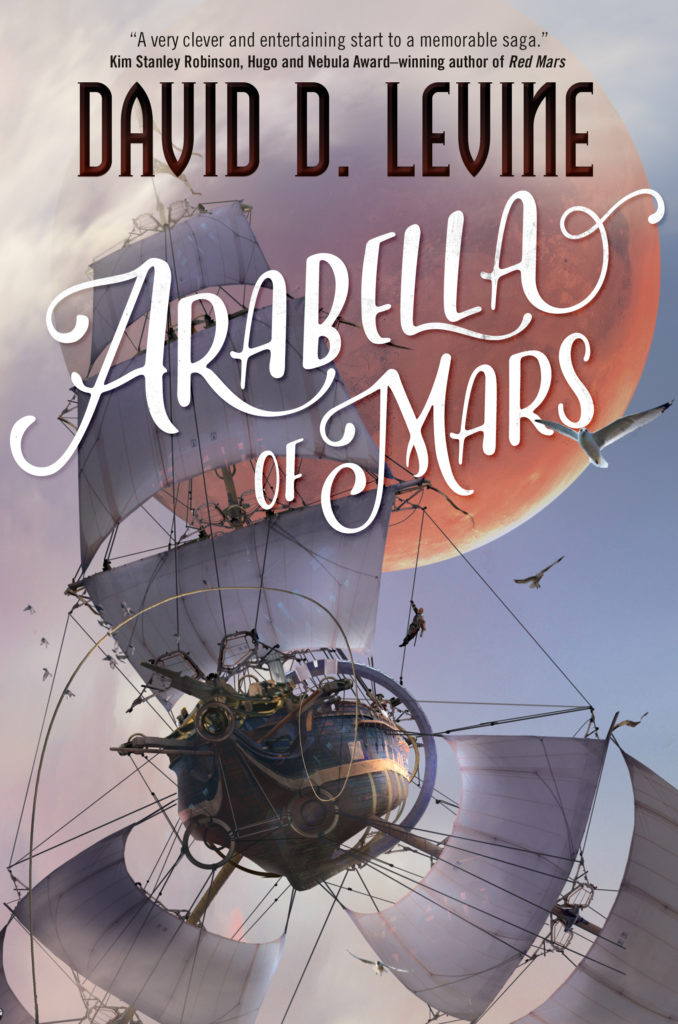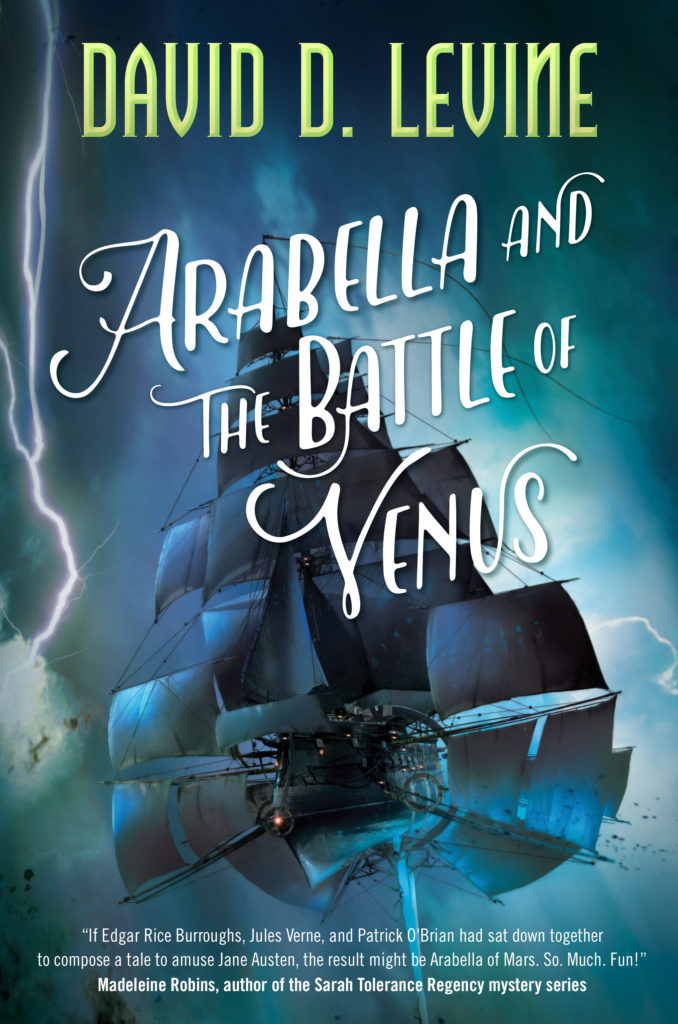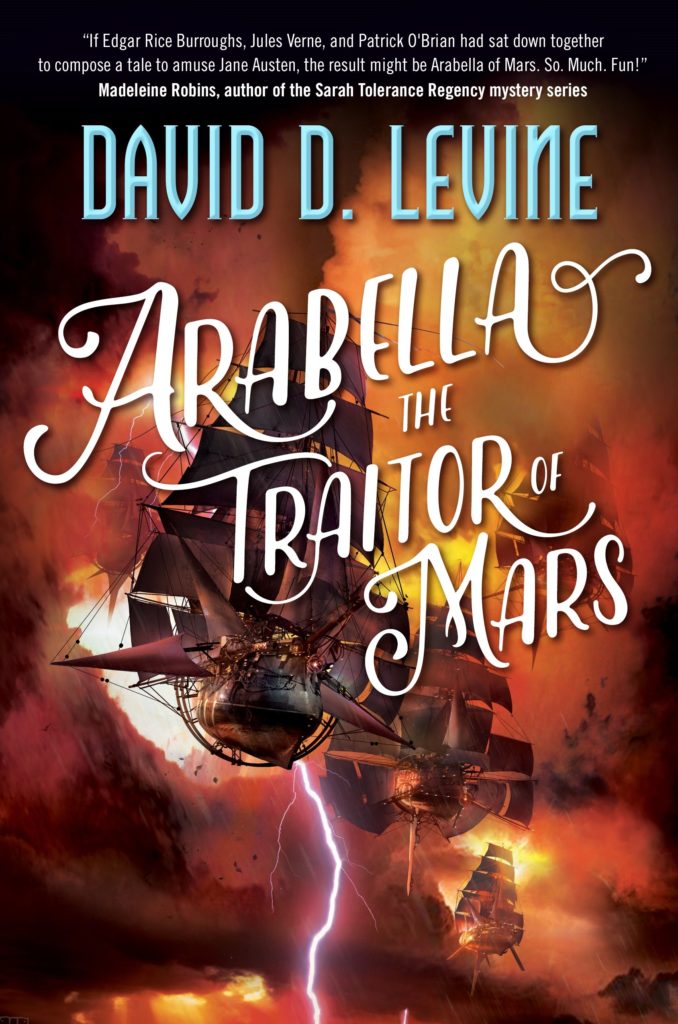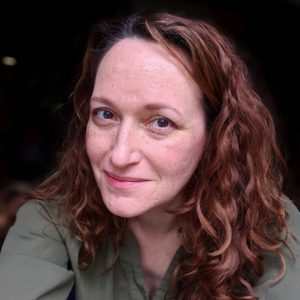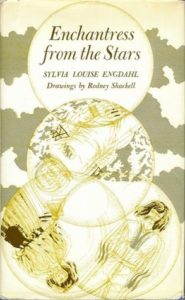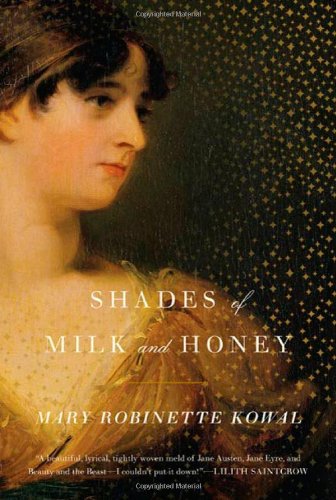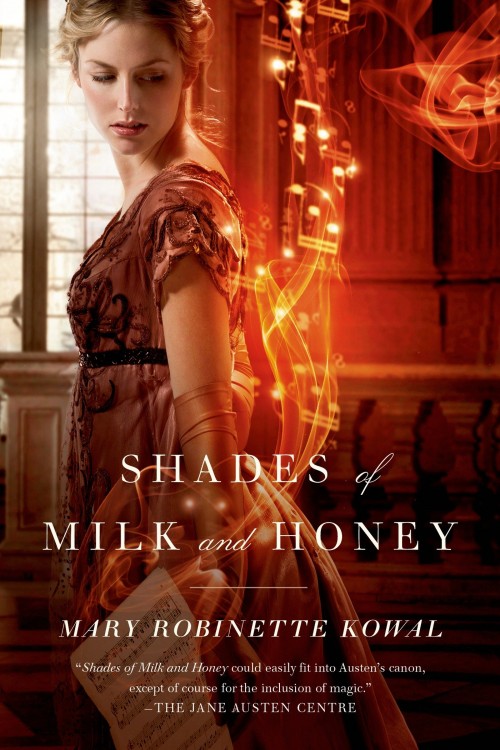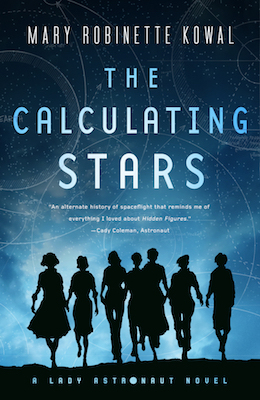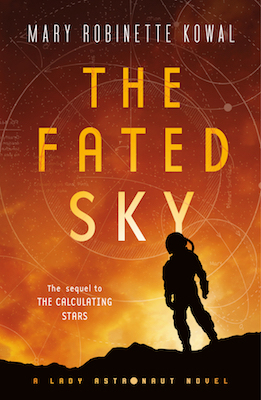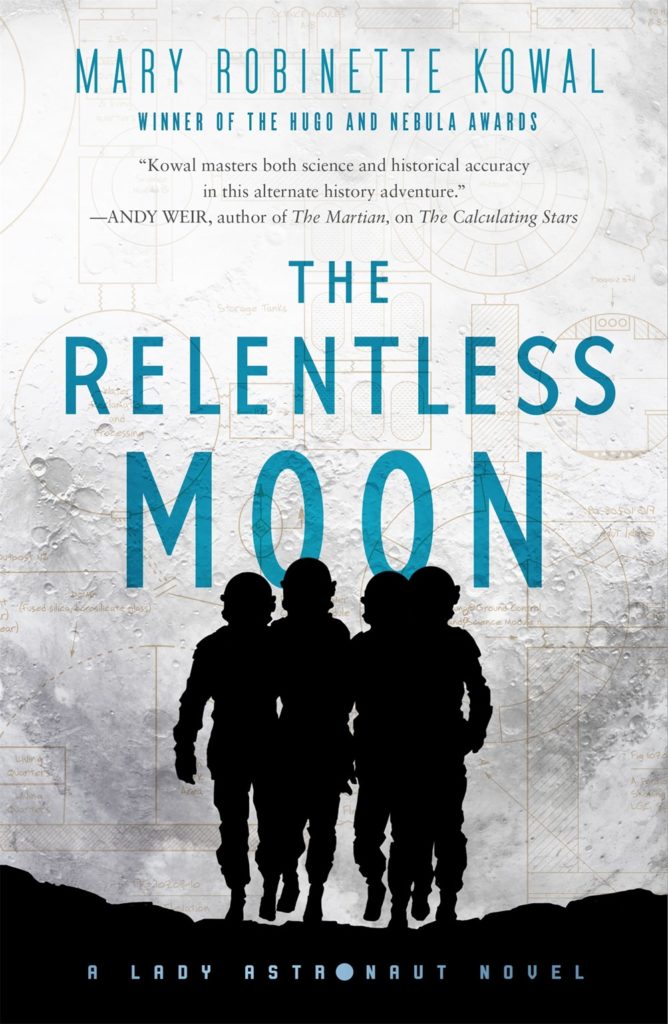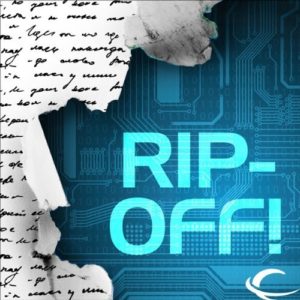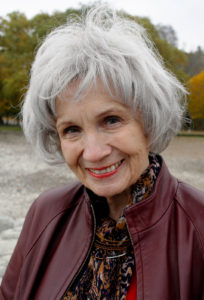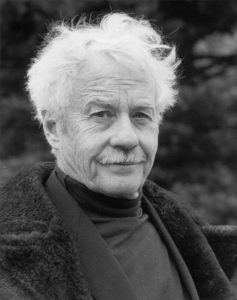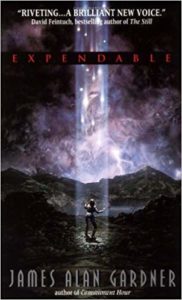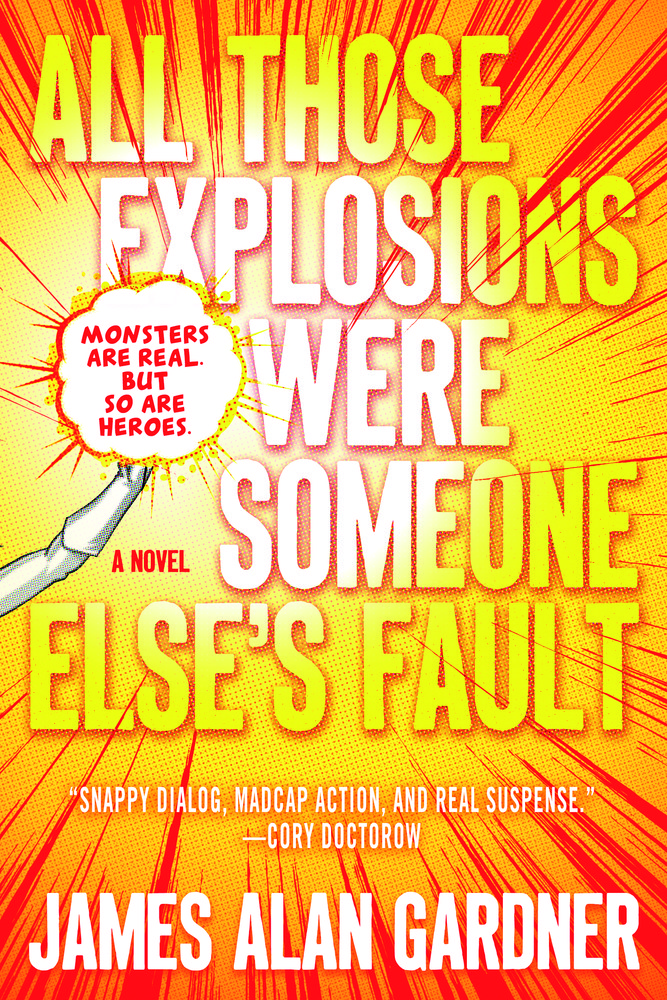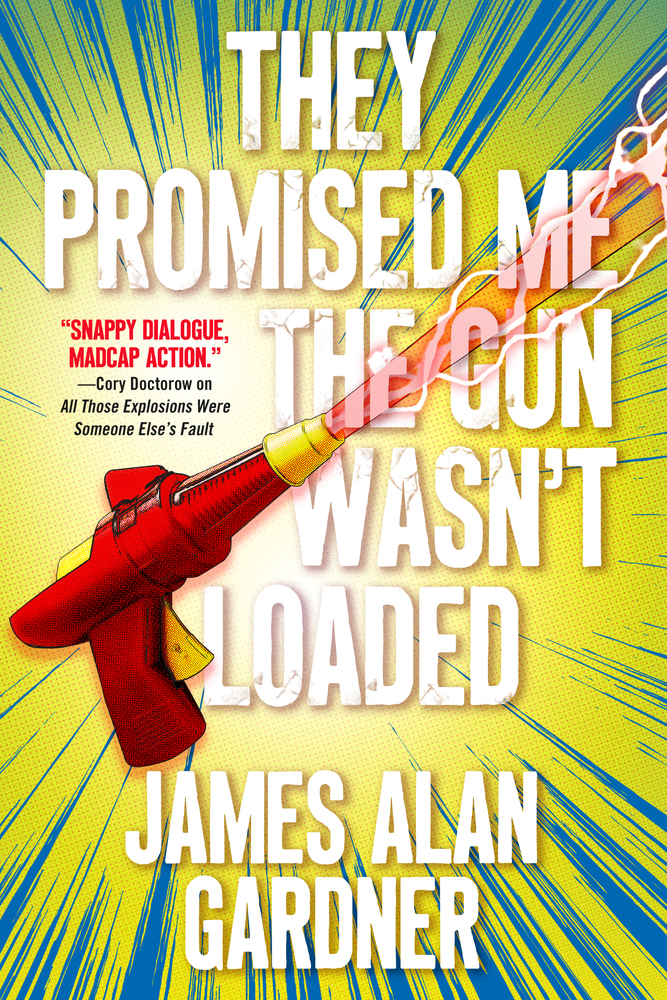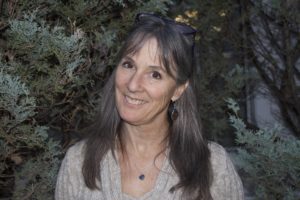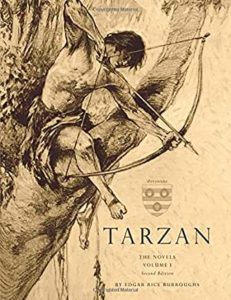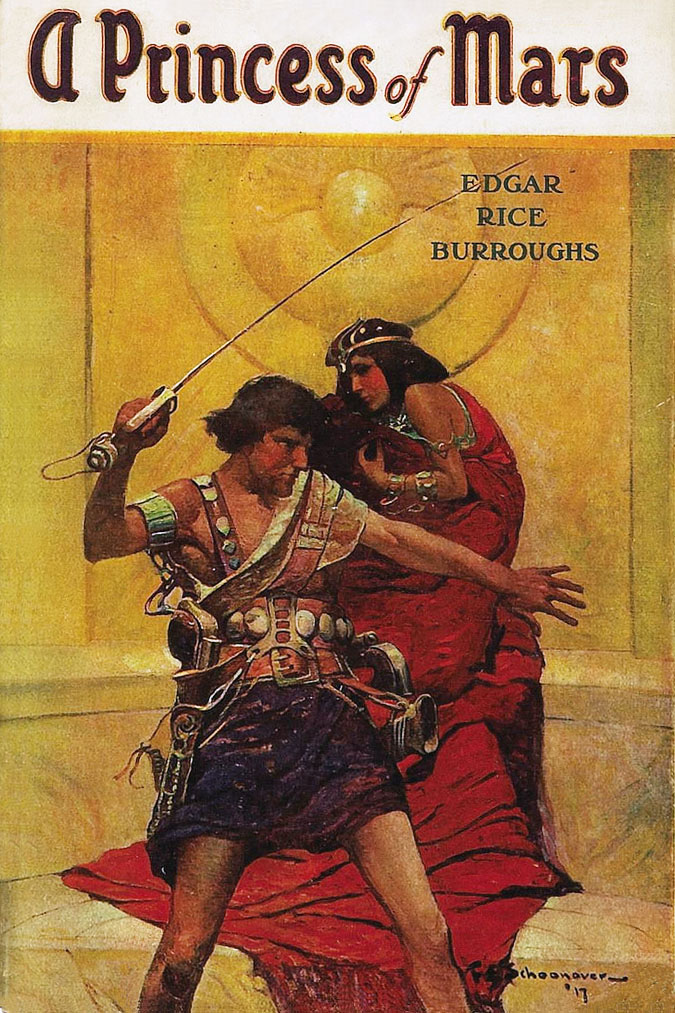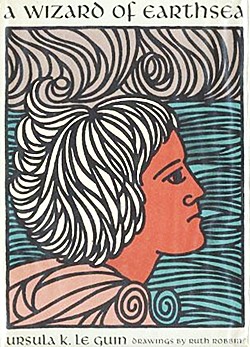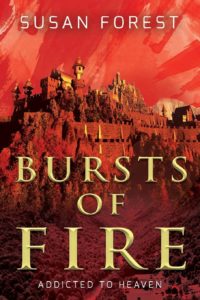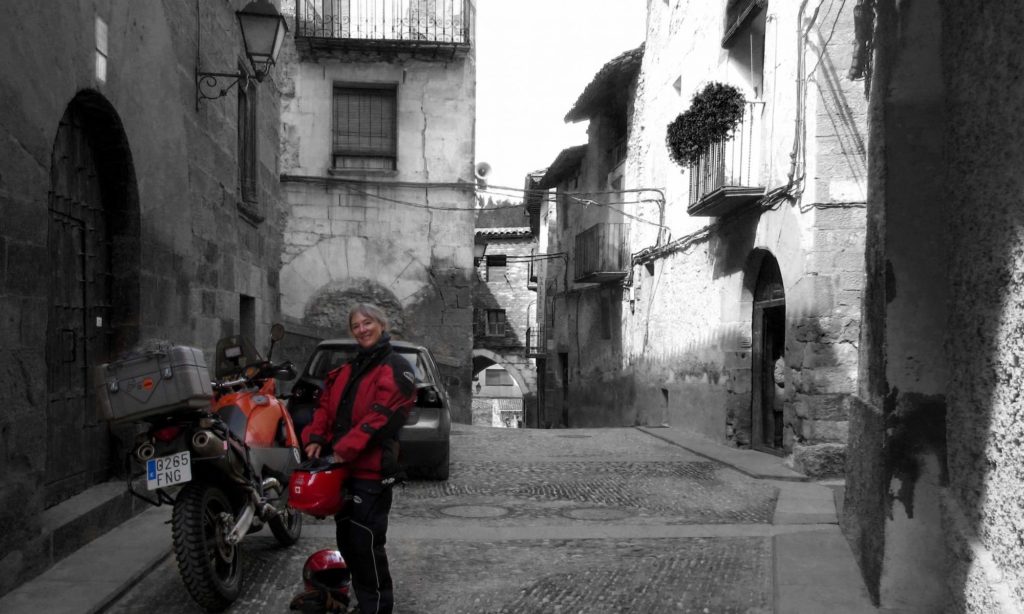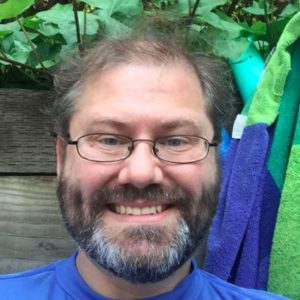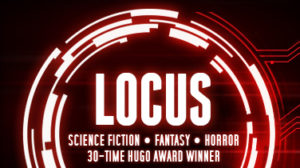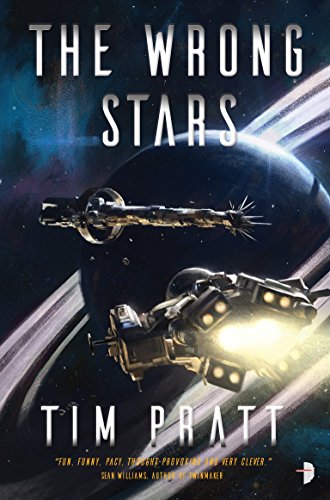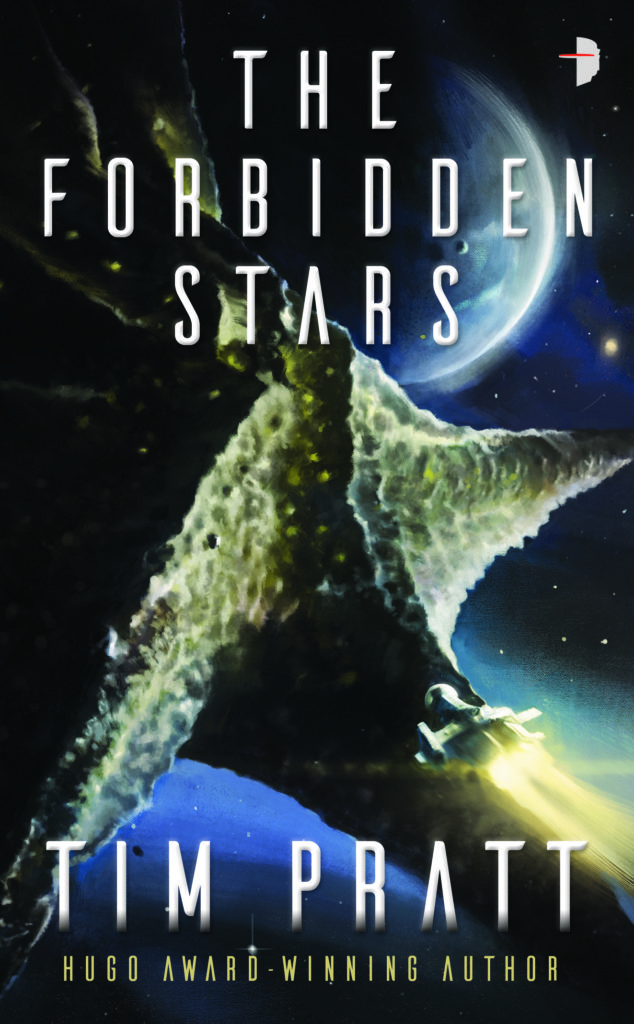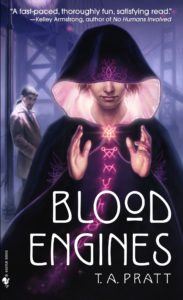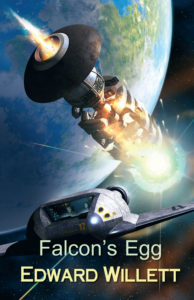Podcast: Play in new window | Download | Embed
Subscribe: Apple Podcasts | Spotify | Amazon Music | Email | TuneIn | RSS | More
An hour-long conversation with Bryan Thomas Schmidt, national bestselling author and Hugo-nominated editor of adult and children’s speculative fiction whose debut novel, The Worker Prince, received Honorable Mention on Barnes & Noble Book Club’s Year’s Best Science Fiction Releases and whose short stories have appeared in magazines and anthologies and online.
Website/Blog
www.bryanthomasschmidt.net
Twitter
@BryanThomasS
Facebook
@bryanthomass
Goodreads
Bryan Thomas Schmidt’s Amazon page
The Introduction
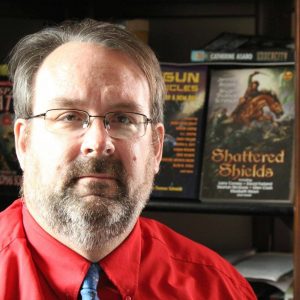
Bryan Thomas Schmidt is a national bestselling author and Hugo-nominated editor of adult and children’s speculative fiction whose debut novel, The Worker Prince, received Honorable Mention on Barnes & Noble Book Club’s Year’s Best Science Fiction Releases, and whose short stories have appeared in magazines and anthologies and online and include canon entries in The X-Files, Predator, Joe Ledger, Monster Hunter International, and Decipher’s WARS, amongst others.
As a book editor, he was the first editor on Andy Weir’s bestseller The Martian and has edited books by such luminaries as Alan Dean Foster, Tracy Hickman, Frank Herbert, Mike Resnick, Todd McCaffrey, Jean Rabe, and more. His anthologies as editor include Infinite Stars and Predator: If It Bleeds for Titan Books, Shattered Shields with co-editor Jennifer Brozek, Mission: Tomorrow, Galactic Games, Little Green Men–Attack! with Robin Wayne Bailey, and The Monster Hunter Tales with Larry Correia, all for Baen; Space Battles: Full Throttle Space Tales #6, Beyond The Sun, and Raygun Chronicles: Space Opera For a New Age for various small presses, and Joe Ledger: Unstoppable with Jonathan Maberry for St. Martin’s Press. He lives in Kansas City.
The (Lightly Edited) Transcript
So, Brian, welcome to The Worldshapers.
Thanks for having me. Good to be here.
We’ve met a couple of times at conventions here and there, I think. And of course, you live not too far from Kansas City. So, I was down there for the Kansas City Worldcon, and I think I probably said hi to you sometime during that weekend.
You did. I think…weren’t your daughter or your wife with you, or both?
Yeah, they were both…I was just telling you before we started that I have family not too far from there. My mom was born in Butler, Missouri, about, I don’t know, 50 miles from Kansas City, a small town, and Adrian, Missouri, is right down there, too. And that’s where she grew up and went to school. And that’s the birthplace of Robert A. Heinlein. So, while I was there, I actually went down to Butler, and they have a library there, Virginia Heinlein’s name is on it, and they have a collection of Heinlein books. And so, I actually donated some of my books to them and signed them while I was down there. So, that’s kind of cool.
But anyway, enough about me. So, we’re going to start with, as I always say to the guests, taking you back in time. How did you first get interested in…well, first of all, in science fiction, and then in writing it? It’s not necessarily the same thing at the same time.
Well, my interest in writing came first, because…my mom likes to say I never played with a toy the same way twice, because I could always imagine new scenarios for the toys. And so I was creating storytelling even as I played. And so I kind of had a natural inclination towards storytelling. So, I started writing basically fanfic of some of my favorite children’s books, you know, when I was in kindergarten and, you know, doodling around before that, but by third grade, I was writing with a partner doing like little books in some of my favorite series.
What were those favorite series?
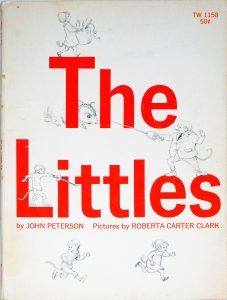
The Littles, 1967
Well, like, for example–I’m trying to remember, I forget the author these days, but—it’s The Littles. They were books about little people that lived in the walls. They had tails and they had, you know, they would fly paper airplanes, and little, you know, contraptions they made out of things, and they lived in the walls. And there was a whole popular series of Littles books. That’s the one I remember that we were writing stuff for. There were other things, but I don’t remember off the top of my head what they were. But that was kind of my first thing. And then, when I got into sci-fi was when I saw Star Wars, and that’s what really…Star Wars: A New Hope really made me look at things differently. I was always into space. All of the NASA launches and the different missions. In fact, my grandma kept a scrapbook, which I now have, of all the news clippings from all the history of NASA until she died. And so, we have, up through the middle of the space shuttles, we have clippings from all that period, all the way back to the very first, you know, Mercury astronaut program and everything. It’s really cool stuff. And so, I’ve always been a fan of all of that, but Star Wars took it to a whole new level and made me think about it in a whole different way. And then I got into Star Trek, the original series, which was rerunning every night and was in competition with dinner, much to my mother’s chagrin, and Space: 1999 and so on and so forth. And that’s what really started it. But, of course, naturally, I combined my desire to tell stories with my science fiction, and it kind of went from there.
So, when did…when you were writing all this stuff, were you sharing it with other people? I always ask that question because I found for myself that when I started sharing my stories when I was writing them in high school and so forth, and I found out from that that people actually liked my stories, and that was one thing that eventually pointed me toward the, you know, doing writing professionally. Did you share?
Well, yeah. I don’t remember who all besides my family I shared them with, but I know I shared ‘em. Some of them, eventually, I entered into a writing contest, creative writing, in school. And I won some awards. And so, that was an encouragement because, like, I can really do this, you know, they’re judging me the best in the contest. I may have something here. So, yeah, I did share. Back then, I was also doing music a lot, and I shared my music a lot more publicly than I think I did my writing, though occasionally, different things would happen with writing. But the music I definitely performed in public, so…
You’re a singer or instrumentalist or both?
Singer, piano player, songwriter. I played banjo, I played guitar a little bit, and eventually took up hand percussion, but I mainly was known for piano and vocals and songwriting.
I always ask that question, because I’m a singer and did that kind of stuff, too.
Yeah. Yeah. I have several albums out.
Well, I can’t say that.
I toured, I had stuff on the radio, and I toured and did all that stuff, too. So, it was a whole other life before I settled down to writing books.
Now, when you got to university, you didn’t actually study creative writing, did you?
No, I studied…at first, I was a music major, because music had been the area where I’d had the greatest success up to that point. And they wanted me to learn classical and they wanted me to write classical, and I got really frustrated, so I ended up switching to the English department and pursuing writing. And I still have mixed emotions about that. I mean, they didn’t really…you know, “you’re not a composer because you don’t write classical music.” Well, lady, people are asking me to sing my songs everywhere I go, and you told me your own husband doesn’t like your compositions, so I think you call him me “not a composer” is kind of a little ironic. That was kind of my response, which didn’t go over well. But anyway, I went into the English department and then ended up deciding I wanted to pursue screenwriting and transferred and finished my college in California doing screenwriting and then went into TV and film. And so, writing kind of took over. But at the time, of course, it was scriptwriting, which is a different animal than prose writing.
I’m always interested in that, as well. So, the scriptwriting that you did…when you did start writing more prose, did you find benefit from having been a scriptwriter?
Well, my dialogue was really strong. I’ve always been really good with dialogue because scripts rely so much on dialogue. When it came to writing all the visceral stuff and the descriptions, that’s where I had to struggle, because I really had to figure out how to describe stuff in the amount of detail I’d never had to deal with before. And that was part of the struggle. But I was writing scripts in high school, really. I created my own TV show when I was, like, in eighth grade and wrote, like, fourteen episodes. And I was writing scripts for my favorite shows and all that kind of stuff. So, you know, I was always doing scriptwriting alongside whatever prose I did.
I want to go back to the studying writing at university, I’ve asked many writers about that, some who have done it, some who haven’t done it. And I get a very mixed bag as to how helpful it was. What was your reaction to the actual creative writing part that you studied at university?
Well, I didn’t have any particularly bad experiences, but I think that what I was trying to do definitely was pushing the envelope as far as creativity with what they were expecting me to do. I always put a twist on everything. There was always some kind of weird…it didn’t have to be science fiction necessarily, but it definitely was a twist. I had to…even with screenwriting, I had to write a newscast for a class. And so, I wrote humorous news stories, but delivered, like, straight. You know, at the time, this will totally date you, but I remember one of the reports was about, you know, heavy winds at the Wichita airport, and you see pictures, video of the planes flipping over and all. You know, so underemphasizing things, you know. “The entire session of Congress had to be cleared today because Vice President Quayle passed gas in session.” You know, that kind of thing was the kind of stories that I would come up with, and they were delivered deadpan, you know? And so, I think some of my teachers were like, “I’m not sure you’re taking this seriously or not.” I was like, “I am, it’s just like, I like to have fun with it while I’m doing it.” So, you know, the humor that people now see in things like Simon Says, I’ve always been doing that. I mean, that’s just kind of where I came out. You know, shows like Hill Street Blues that mixed humor with drama were always my favorite types of shows, anyway, so those were kind of the things that I modeled myself after.
So, you were writing scripts, but you did several things along in there before you really started focusing on the prose side, didn’t you?
Yeah. I mean, I did the…I was doing the music thing, and then I ended up going back and getting a master’s degree in seminary and doing…starting a nonprofit that taught leadership development in the arts, and went over to Africa and Brazil and Mexico and various places, and helped train leaders. In fact, in one denomination in Ghana, West Africa, I would say seventy percent of their music leaders today are people I trained. So…I mean, Ghana is the size of Oregon, so, you know, take it for what it is, but…you know, it’s one denomination out of, you know, hundreds. But still, you know, it’s kind of an accomplishment to have had that kind of impact on a particular group of people. You know, we’re talking about forty, fifty people who are kind of my progeny over there, they’re doing their thing, that I was able to train and have gone on to success. And so, a lot of those experiences that I got out of that have, of course, informed my writing.
One of the reasons I went and did all that is, when I was doing screenwriting at first in Hollywood, you know, I kept getting, “Your stories just a little too plain, a little too cliché, a little too, ‘we’ve seen them before.’ You need to get more life experience to write from.” So, I ended up going up and doing a concert tour, when I did my first album and left Hollywood behind. Quit my job—I was working for a company that did documentaries for History Channel and A&E and a bunch of different stuff, doing all these different shows, Biography was one of them. And I left and went on tour as a musician, moved back to live in Kansas City with my sister, and ended up doing the music thing, going to seminary and then going off and doing ministry for a while and doing these leadership-development training things, and then found my way back to prose, you know, after a decade of that. So, it was kind of a roundabout way that I came back and started writing novels as opposed to, you know, screenplays and songs and other things. But I started my first novel in about 2007, 2008.
And is that the one that was The Worker Prince which was published in 2011?
No. That was 2009. The first novel’s unpublished. And may never be published.
I have a few like that.
Yeah, it’s…yeah, I mean, I like the story and the concept, but, man, I was not up to pulling it off. Worker Prince is interesting because Worker Prince went through more rewrites than any book I’ve ever done to get where it was, and then, of course, we did a second version of it when it was picked up by a new publisher after the first publisher kind of went belly-up in the middle of releasing the books. So, I got a chance a few years later to put them out again and release the third book in the series. And I rewrote the first two and fixed a lot of things because my prose had advanced back far enough I felt like, you know, this was a chance to really write some wrongs, so to speak, and put it out there. So, there’s two versions of the story out there, too. So, yeah, Worker Prince was my first published novel. And that trilogy, actually, the Saga Of Davi Rhii, is actually gonna be re-released this summer, God willing, from my Boralis Books imprint and be out in hardback for the first time.
So, that’s your own imprint, Boralis?
Yeah, I’ve got my own imprint now that I do a lot of these novels and stuff with. I’ve also sold a novel to another publishing company, as well, and I still do anthologies with some of the other publishers and, you know, my novels are out there, but it’s just, you know, there’s so many advantages to doing it yourself these days, but I’m kind of becoming more hybrid.
Yeah, me too. I’m published by DAW, but I have my own little press, too, Shadowpaw Press, which I’m putting stuff out through for sort of the same reason, one of which was a story that came out and I went back and rewrote it. It was kind of nice to go back and fix some things in that old book.
Yeah, I mean, sometimes you realize…I mean, there’s a point where I say, you know, people ask me, “Oh, you’re going to put out Worker Prince again? Are you going to do yet another version of that?” No, I’ve done that. And I can look at it and probably nitpick it to death right now, based on where I am as a writer right now, because I feel like the John Simon books, which is my current series, is way advanced ahead of where I was with the Worker Prince series, but at a certain point, you’ve got to let your writing stand. And I think, you know, I got a chance to do the books I wanted to do, and that was the only reason that I did the rewrite the first time on that series, because I’d had a publisher pressured me to go one direction with it and various things, and it was new, and the next publisher was just like, you know, “Give me the best books you can,” and I was able to just go back and make it what I wanted it to be rather than what somebody else was telling me it needed to be. And so, that’s why I did it. And, you know, I think there are…it is certainly fun to go back and explore your writing. Sometimes it’s painful to go back and explore your writing.
I’m actually…I have a copy of the first novel I wrote in high school, The Golden Sword, which was later rewritten as The Silver Sword when teenage me realized you probably could even pick up a sword that was made out of gold. And I’m going through it because it’s interesting. And I’m tempted to throw it up under a pseudonym on Amazon just to see what happens. The scary thing is, what if it sold better than my current stuff? That would be so horrifying.
Well, you know, the one thing…there’s good and bad about the whole self-publishing movement. The bad is that people can throw up any crap they want. And I don’t say that as an indictment of what you’re talking about here with yourself, but I’m just saying, unfortunately, there’s a lot of crap out there being published, and some of it is actually successful. And so you never know. Your book might come out and it might, you know, be a hit. You can’t look at it as an indictment of quality anymore. I mean, you want to put out the book that you’re proud of that best represents you under your name, and you absolutely can be proud of that. But, you can’t look at anybody else’s success as a measure of your own because there’s just, you know, they might be a marketing genius who writes like crap, you know?
Yeah, I think there’s definitely some of those out there.
Yeah.
You’ve done quite a bit of editing. How did that get started?
Well, the editing came about because I found that I had a really good ability to communicate with writers. I’ve always been a communicator. I like teaching, and I like helping people. And I got an opportunity to do one of those gratis anthologies called Space Battles, where everybody basically was donating a story, and that was my first chance to see what it was like. And at the time, I was being mentored by Mike Resnick, who was a big anthologist. And Mike was encouraging me with anthologies, and I was really starting to say, this could be a fun way to get to work with some of my writing heroes, and give new writers a chance to work with their heroes, and it’d be kind of a big collaborative thing. So, I started doing that, and then in the process started doing some freelance editing and ended up doing novels and other things, as well. And eventually, you know, my fourth anthology or something like that was Shattered Shields, which I did with Jennifer Brozak. Well, Jennifer grew up with Andy Weir, and Andy Weir wrote The Martian. And I was sent The Martian because Jennifer didn’t want to edit her childhood buddy. She felt it wasn’t wise to work together.
Probably true.
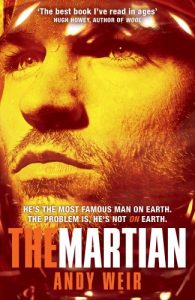
by Andy Weir
So, I got Andy Weir’s The Martian, and I was the first editor on it, before it ever went out, and worked with him on it. And later he did…you know, I’m always proud of this, and I always remind him of this, and he freely admits it, but the stuff that he refused to do for me when he was paying me, Crown made me do. So, you know, I edited it, and I told him he needed to, you know, “You need to describe NASA. You have all these scenes with NASA. You need to describe the sets.” “Well, everybody knows what NASA looks like. I don’t need to describe mission control.” “Like, yes, you do.” “No, I don’t.” So, he didn’t describe mission control. You go back and read the final book, and yes, he did, because Crown told him to do it. So, there were a lot of things like that, that…but when, you know, when you’re a freelance editor, you work for the client. If the client’s the author, they can basically overrule you. And, you know, that’s why I started…I have a rule where it’s in my editing contract that, you know, you can only put my name on your book as editor if you really want to put my name on it, if you have my permission, because there are certain books that I’m just like, “Yeah, I edited that. But they didn’t listen to me, and I don’t want my name on it.”
That sounds like a good plan. I’m doing some freelance editing, although it’s anonymously at the moment, but yeah, that’s a good idea. I’ll remember that.
Well, I mean, it’s…the thing is that, especially as I became more and more known as an editor rather than as an author, which is ironic because I always think of myself as an author, but because of the success I had as an editor between Andy’s book and then a bunch of anthologies and different things, and I reached, you know, national bestseller status and a lot of things before…with, you know, editing than I did as an author, you know, I started to really worry more about my reputation as an editor and the value of that. And people started to come to me, want me, because they wanted the editor of The Martian to work on their book. So, it started to become the kind of thing, well, I need to protect this and make sure the integrity is there, integrity has always been important to me, and make sure that it actually has maintained some value. And so, that’s when I started thinking about the fact that, you know, I had people trying to slap my name on the book and then when they put their book out, and they got bad reviews on Amazon, they would comment on the reviews and say, “Oh, that’s the editor’s fault.” And I would have to go in and send them a cease-and-desist letter or risk having to come in on Amazon and say, “No, we told you to do it. And I can print…I’ll put a blog post up and show everybody where we told you to do that.” And I didn’t want to get in those kinds of battles, so it ended up just being easier to just, you know, make it a policy and just let people know in advance than to try to have to deal with that.
Do you find editing…I’m currently writer-in-residence at the Saskatoon Public Library, working with a lot of writers…and I do find that working on other people’s manuscripts helps me see flaws in my own. Do you find that to be the case as an editor?
Yeah, I mean, I think it’s…I always am finding stuff that people do that I think, “Oh, that’s a great description. I need to memorize that turn of phrase, because I could use that. I’ve never seen that before. That’s something that I can incorporate into my own dialogue, internal monologue, that would be something I could use.” Or, you know, some way that they’re doing things that is unique. And, yeah, I’m always finding things. You know, I always tell people the reason that I did so many drafts on The Worker Prince is, I was learning craft.
And I literally did a sartorial draft. People said to me, “None of these people are wearing any clothes. You never mention clothes, the entire book. Where the hell…what, are they naked? What’s the deal?” So I did a whole draft where I did nothing but address what people were wearing. Because I literally hadn’t…because I don’t think about clothes, because I’m not fashion-conscious. Anybody who’s ever seen me in public knows that. I don’t…so, I didn’t even think about it, you know? So, I had to go back and actually write what I call my sartorial draft, where I did nothing but put people in clothes throughout the entire book, you know? And I would do drafts on, you know, a particular character’s dialogue or a particular subplot or, you know, “You didn’t do enough description. So you need to do a descriptive draft,” you know? Now, a lot of that stuff, I can do it two or three drafts, and it’s all part of the process. But at the time, I had to focus on specific aspects of craft and go back and do a draft because I was learning it.
And I think that’s where… people talk about the writer’s journey. People get, you know, some people get annoyed by that. You know, it sounds cliché, but the reality of it is, you’re building your toolbox, and eventually, you can use more than one tool at a time. But when you start out, you can’t use a saw and a hammer at the same time. Well, most of the time you can’t really use a saw and a hammer at the same time that I can think of, anyway, but you get my point. My point is, you know, you’re gonna have to…you learn how to use the tools one at a time, and then you can put them all together. And you get to that point where you can…I’m sure you’ve experienced something similar, where you can eventually, you know, you’re thinking about all the different things at the same time, theme and, you know, all those kind of things. But at first, I literally had to think, stop and think about them individually in some cases.
Well, you’ve mentioned process, and that’s what we’re going to talk about now. So, talking about your creative process, but first, we’re going to use these Simon…John Simon thrillers, right?
Yep.
We’re gonna use those as the example. So, maybe we should start with a synopsis of at least the first book, or both, whatever you can do without giving away too much.
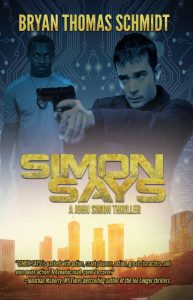
Well, the John Simon thrillers are a near-future, 2029 Kansas City noir detective series. They’re about a top Kansas City Police Department veteran detective, an eighteen-year veteran, who, when his partner is kidnapped, has to team with the only witness. The problem is, that witness is a humanoid android, and he hates technology. So, this is the only guy that can maybe help him find his partner, and so he reluctantly teams with him. And thus a beautiful friendship and partnership is born. And basically, that’s the whole premise of the series. Now, what happens in Simon Says is, they’re investigating some people who are using art to transport secret documents, and I won’t say how, but it’s very, you know, there’s a whole technical aspect to it. It’s very, very sci-fi, and so on and so forth, and all that’s going on.
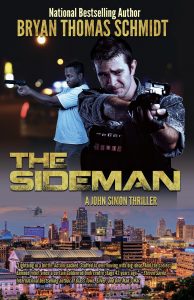
So, that’s book one. Book two, they’re dealing with terrorists who want to blow up some major tourist site in Kansas City. Book three, which I’m finishing right now, there’s an outbreak, somebody sabotaged a bunch of androids, and they’re behaving against programming. And so, that threatens the status of Lucas George, which is John Simons’s partner, the android, you know, threatens his status on KCPD, and so it becomes this whole personal crisis for him. So there’s…that’s kind of…I don’t know if you wanted more in-depth of a synopsis, but that’s kind of the gist.
Well, hopefully that piques people’s interest. So, what was the seed that…you know, I hate the cliché, “Where do you get your ideas?”, but it’s still a legitimate question. What was the seed from which these stories grew? How’s that?
Well, it’s funny because, actually, Simon Says started out as a screenplay, and it’s something I wrote in the ‘90s. And it’s interesting, because I wrote it and it wasn’t…it really wasn’t strong enough, but it was my buddy cop story, and it was written and set in Miami because I was a big Miami Vice fan. So, for whatever reason, I decided to set it in Miami. I also had just made a trip to Miami, and I could do research to write it off of. And it was about this tough, macho LA cop who has to team with an HIV-positive snitch to solve his partner’s kidnapping. Well, he, of course, is a little bit homophobic, a little bit weirded out by the HIV thing, which was very common back in the ’90s when HIV was new. And so, I wrote the storyline, and there was an art-dealer storyline, but it was very, you know, everything ended up being about drugs, and it was very…what I got from people was, “We’ve seen it before. It’s too cliche.” So, I liked it because I had come up with all these really cool scenes and action and the humor and the banter I really liked, but, you know, nothing ever happened with the screenplay.
So, when I decided I wanted to do something different after the Worker Prince series, the Davi Rhii series, I was looking at things, and I said, “You know, I really love cop stories.” I started pulling out Simon Says out of a box, and re-read it, and I said, “You know, I bet you I could do something with this, but I really need to rework it.” And so, I took it, and I said, “Well, you can’t do the HIV storyline now because people would hate this guy because they’d think of him as homophobic,” and it’s a whole different environment for it, so what could I do? I could make him technophobic and put him with a robot and turn it into sci-fi. Perfect. So that’s the genesis of it, really.
Okay, then. So, on a more general term, where do ideas for stories generally come to you from? That was pretty specific on that one.
Well, it kind of was, yeah. I’m sorry if you were looking for general, but generally speaking, I just, I don’t know, a news story? You know? I got one the other day that…there was a news story on, and I got this idea for this thing, and I wrote it down, said, “This is something I could do something with.” And, you know, I mean, that kind of thing happens all the time. Or I’ll…even a line in the song, or somebody’ll make some comment, or something will happen, I’ll get all these things. I mean, with this John Simon series, the plots for the future books come from the police blotter or from stories that I hear from the cops when I’m doing my research, a lot of times, where I’ll take it and put some kind of a sci-fi twist on it or some kind of a different twist on it. I’m always trying to do something. I mean, these guys are not homicide cops, they’re property detectives, which ironically, they end up investigating homicides and other things in the process of investigating property crimes, which kind of stretches the reality a little bit, but that’s what they end up doing. And that’s because I wanted to show other areas of policing besides just the usual homicide cop, you know, the murder detectives. So, I actually get to show them doing other kinds of investigating besides just murder. So it’s kind of, you know, the rebel in me wanted to do something different?
Well, you mentioned research. How much research do you do on these, do you have to do on these?
Well, I mean, I all-night ride-alongs with the Kansas City PD, you know, two or three times a year, where I literally go out all night long in the roughest neighborhoods of Kansas City and do ride-along. ’Course, none of that’s going on right now because of the fact that we’ve got the Covid crisis going on. I normally would be doing one right about now, because I’m getting ready to start book four and I always do ride-along in between books. So, I do both. I also have several friends now on the department.
I go to actual locations because I’m writing in Kansas City. I actually go and take pictures of locations. I listen and make notes, “What do I hear? What do I smell? What do I see?” so I could describe them well. And I will talk to people about the history of Kansas City and do various things. I did a whole tour of Kansas City and recorded it one time for three hours with this guy who was an expert on the history of Kansas City, so I could get a whole sense of the city. I am constantly talking to police about various, you know, things that are going on. “What’s the latest?” You know, my nephew’s a cop, too, but in a different department, so I hear from him. And, you know, “What kind of cases have you had? What kind of interesting things? What’s going on with your department”, those kinds of things.
So, I mean, you know, I’m doing that kind of research, and I’m also doing research on tech, you know, to keep up with my android storyline and whatever tech I can come up with for police tech. What’s the future of policing going to look like, and what kind of tech can I come up with that I can build stories around.
When it comes to building the stories, what does your planning/outlining process look like? Do you do a detailed outline? Do we wing it a bit? How does it work for you?
You know, I’m traditionally a panther. The first book, I wrote 110,000 words in six weeks, which was incredibly fast for me, but I cheated because I had a screenplay. I had 50,000 words already written. And I basically, I didn’t use all of them, but I had a hell of a lot that I could use and rewrite. And so, I kept a lot of sections of dialogue, but I reworked a lot of things. So I was able to, you know, cheat and write that book faster because I already had a basic structure, an idea. I just was, you know, building around it and making it better and stronger. The second book, you know, took me a lot longer. So, generally, what I do is, especially if I’m building a sequel is, I’ll map out what I call the TV Guide pitch line for each plot, the main plot and the subplots. And then I do a synopsis, which is just a short one-page thing, four or five paragraphs max, where I lay out, “This is what the gist of the story is.” And that’s what I work from.
And as I go…I work in Scrivener, I have a template for these books that’s already broken down into a chapter with three scenes per chapter. There’s chapters that have more than that, but I just have a base template with three scenes already laid out, empty scenes that I can do. So, I will make notes in there or in a research document inside Scrivener, I’ll make notes about ideas I have for later scenes or characters or whatever and where I think they’re going to go and where they’re going to fit in the story, and I’ll start putting things in that as I write, as they occur to me, but I basically kind of work that way. I don’t really do a lot of detailed outlining.
What does your actual writing process look like to you? I mean, right now everybody’s stuck at home. Do you normally write at home? Do you go out somewhere? Where do you like to work?
You know, I’m one of those lucky guys that can work anywhere, but I generally work at home. But, I have an office in my home, I’ve got, literally, I’ve got a copy machine and printers and file cabinets. And it’s, like, if you walk in there, it looks a lot like an office in some office building. And it’s, you know, right across from my bedroom. So literally, I could walk over there in my underwear. But it’s going to work. And I usually try to keep set hours when I write and set hours when I edit. And I fit my social media marketing around all that. And then, you know, I sit down, and I write, and I try to, I have to get, you know, 2,500, 3,000 words a day, depending on what day, what project I’m doing. You know, sometimes I only do 1,800 words a day, sometimes I do twice that. It varies, but I have to at least get significant progress done. And that’s pretty much my process. I work, like I said, I work in Scrivener and my first draft with, you know, various other support documents where I need them. I always have the Internet open so that I can do research because I’m always doing Wikipedia stuff or Googling or, you know, checking the department charts for the KCPD, or, you know, checking my photos from my locations.
I’ve done, you know, I literally do location scouts. I use the Kansas City film…what is it called?…the Kansas City Film Office has their own online database of locations in Kansas City. I use that all the time to find locations that I haven’t thought of that would be perfect for my stories. Because I’m really…I mean, the thing about Kansas City is, you know, I really want to capture unique features of Kansas City when I’m writing. And also, I want the most interesting and appropriate setting for each particular scene. You know how, as a writer, know how important it is to pick the right setting, to get the mood and the, you know, the level of tension and whatever you want and give your characters the right busyness around them to create the right ambiance for a particular scene to work most effectively. And so, I’m always looking at that while I’m writing. So, all of those kind of things.
And then, I just write. I also keep a bunch of screens of movie quotes and TV quotes open because Lucas George, one of his things is him trying to become more human. You know, John Simon’s precocious fourteen-year-old daughter convinced him that he needed to start quoting cop movies. So, he quotes cop movies, and he quotes them comically because he doesn’t quite understand the context yet. So he’s misquoting…well, he’s quoting them correctly, but in the wrong place at the wrong time. And so, I always have to have those open so that I can find new quotes to throw in for them. And he’s getting a little bit better at it as he goes, of course, as he figures out better comic timing and what’s appropriate, but I milk a lot of comedy out of the series because, you know, it’s very gritty, it’s very noir, it’s very gritty. It’s, you know, there’s a lot of cursing, it’s very realistic. It’s very much written and modeled after my experience riding along with cops, what I heard, what I saw. So, you know, there’s violence, there’s shootouts. There’s all…
I mean, the first night I did a ride-along I saw, I went back to the same location twice for two different shootings. I rode to the hospital with a gunshot victim. We stayed in the ER with him. We watched a woman chasing her brother down the street with a knife. I mean, I saw all this violence and stuff in front of me. So it’s not like…I mean, I’ve seen it. You know, I’ve seen meth addicts recovering in the ER, you know, and see what they’re like. And I mean, it’s just. I try to capture that in it because I’m trying to pay tribute to the difficulty of what it is to be a cop and the challenges they face at the same time as I’m telling my stories. So, I have all of that mixed in with the humor because, you know, humor breaks it up, and just when it gets so tense and so dark that you just, like, it’s unbearable, you can break it up with humor and give people a chance to breathe.
Once you have your completed first draft, what does your revision process look like? Do you do multiple drafts, or how do you work?
Generally, my revision process at this point is that I send it to an editor and a proofer. My first proofer. And the editor gives me extensive notes, the proofer just goes through and does prepare. That way, they both catch different stuff. And then, when I get that back, I do a rewrite and I will…which is what I’m doing right now on book three. He’s like, “Oh, this didn’t quite work. You mentioned this, you described this earlier, you don’t need this description here, but you need description here, here and here. You need to go figure this…this logic flow doesn’t work,” that kind of stuff. So I’m working through all that stuff, and I’m doing a rewrite and polish.
And I remember stuff that I didn’t do. For example, in book one, there’s a lot of song references throughout the book of futuristic songs that they’re listening to. Well, I forgot about that for much of book two, so in book three, I’ve tried to put those back in. So, I’m doing a pass where I literally go through and make sure I’ve done that. You know, different worldbuilding things that maybe I forgot about because they weren’t caught in the story, I have to go in and build them in because they’re part of the world and I have to make sure I touch on those kind of things.
And then it goes to another set of proofers and then the formatting guy, and he does the widows and orphans and the formatting, slides it on the template, and then we publish it. So that’s pretty much the process. All of that together takes about three months from the time I finish the first draft.
You don’t use, you don’t have any beta readers like some people like to send their work to ahead of time?
I don’t really use beta readers. The main reason is because I never really found good ones that I could trade with. And I spend so much time running my story…if I have story problems, I’m on Facebook Messenger talking to one of my writing friends about it. Like, I have…like, I mean, with this third book, Martin Shoemaker has been a great help to me. And he’s taken…we broke down the whole story and talked through different aspects of it, and he’s suggested stuff. And just by him suggesting stuff, it’s triggered me, and I’ve made my decisions and gone off and written my story. And he’s reminded me of stuff that I needed to cover that I ended up, you know, making it…so, I kind of beta it that way instead of beta-ing it by sending it out, you know, to beta readers and waiting months and months. But that’s just kind of my process.
I was just gonna say I’ve never used beta readers, mainly because I’ve never lived anywhere where there is anybody but me who is writing. So, yeah, like, my editor is the first person that sees it.
Yeah.
I was also going to ask, since you have talked about doing the ride along with the police and everything, I want to know what the overall reaction to the books has been generally, but I’m particularly interested in if the cops like them.
Well, I mean, they’re still friends with me. And they’re very supportive and cheering me on. To be honest with you, the response I’ve gotten from the cops has been really supportive. They’re really, they’re kind of proud of the books because they really feel like I represented the department well. I mean, I put them…I don’t make all cops out to be bad guys, and I don’t…I mean, it’s a real different environment nowadays for…everybody jumps on the cops all the time on the Internet and all over the place. Whenever there’s anything, any incident, you know, cop-involved, there’s people out there going, “Oh, the cops are abusing their power again, and they don’t even know all the facts.” And that’s why I always say, “Well, let’s wait and get the whole story before we decide whether the cop behaved badly,” because there are cops that do cross the line, and there are cops that behave badly. But there are also boundaries the department sets that don’t always look like they’re legit to the public, but they’re going to hold up in any court of law, whether you like how it looks or not. So, all of these things are kind of…it’s…and I know. A lot of people will hate that, but that’s the way it is.
And the reality is, you know, the cops have been happy with the fact that I have not…I dealt with the fact that they have to deal with those perceptions at the same time. I also, I mean, I’ve had corrupt cop characters in my stories, it’s just that I show all sides of it. So, they’ve been happy with it is basically the answer to your question. And I’ve been, I’m proud of that, because I’ve had a lot of people who know about policing read it and say that I got, you know, I obviously did my research and got it mostly right. So…I mean, I push the boundaries so that there’s things that I for storytelling, I just take a leap. Plus, I’m setting it in the future, so I can kind of, you know, play with some things when I want to.
Yeah, we don’t actually have android cops yet. So there is that.
Well, yeah, it’s not just the android cop thing. I have my cop living outside the jurisdiction, which totally is not allowed right now, but I know a tricky way I came up for him to do it, and they’re like, “Oh, that would never fly.” And I’m like, well…and then literally, literally recently they’ve been talking about changing that rule. So here I came up with it now, now it’s like it could actually be a possibility.
There’s another example. I came up with the idea of…it was a joke that one of the cops told me where he said, you know, he would sometimes take a fingerprint, take a suspect, and put his finger on a cellphone and say, “I’ve taken your fingerprint, and I’m running it through a database,” to scare a particularly dumb criminal that he was dealing with right? And I put that technology in my books, and now they actually have it. It is the latest tech. They literally have fingerprint scanners they can use in the field and instantly run your fingerprints. So, it’s, you know, there’s a lot of tech like that.
I also have a thing with media drones where, you know, there aren’t reporters on the scene near as often as there are drones, you know, that are literally media drones with cameras that are like, flying past the police tape and getting in the face of the cops, asking questions, you know, and the cops are annoyed by them. I think that’s where we’re going with the media, I really do. I think we’re going to see that, you know, in the next ten years. So, it’s…there’s lots of things like that that you do have to stretch the boundaries, but some of them end up coming true, which is kind of fun.
I’m also interested that it’s set in Kansas City. It’s not a place that I have read a lot of near-future science fiction set. It’s usually going to be New York or Los Angeles or somewhere like that. Did you just want to show off your hometown more or less?
Well, you know, like I said, the original story was set in Miami, and then there was this LAPD thing. And I, you know, what I originally decided was I needed to do it somewhere where I could actually do the field research. If I was going to write near-future, I had to make it real, which means I had to be able to go to places and, you know, actually, you know, I mean, I use Google Maps when I’m writing them, and then I literally go drive the route And I literally go…say, I set a scene here, and I did this, I want to go drive that route. And I’m going to see what I see, and I’m going to go back and fix it, so that somebody reading this book who actually drives that route will say, “Yeah, he got the landmarks right.” I mean, that’s the kind of detail I care about. So, I try to do that as much as I can. I don’t do it all the time, and there’ll be some people who catch me on it, and I know they will, now that I’ve said that. But, you know, I try to do it as much as I can because…and so, that’s why I did Kansas City, because that’s where I am. If I’d been in St. Louis, I’d probably have set it there.
And also, you know, LA and New York, that’s where everything’s set. Everything’s set there, and there’s reasons for that, and so on and so forth. LA, New York, and Chicago are the main ones. But I kind of just felt like Kansas City was a unique area where I could explore things. And it actually has a pretty interesting backdrop. I mean, there’s ties…I don’t know if people know that, you know, the mobsters in Godfather and the mobsters in Casino all had…you know, those kind of people, the real-Life models for them all had ties to the Kansas City mob, for example.
Apparently, my great uncles on my father’s side were mobsters in Kansas City or had some connection to it, because he had memories of them and their female hangers-on coming out and hiding out at the farm where he was growing up in their big black cars. He had memories of that.
There you go. Well, you see. So I mean, yeah, there’s actually really interesting history, and there’s some really cool stuff that, you know, besides crime that went on in Kansas City, too. I mean, we have the World War One museum, which is fantastic, we have, you know, some really world-class art museums. And there’s lots of different…steamboat museum and lots of different areas and things that have…and there’s also a whole series of caverns underground from where they were doing sandstone mining and limestone mining. And so, like book two, one of the major settings is this underground cavern that goes under Worlds of Fun and Oceans of Fun, which is a big amusement park here. And those are real. And I actually went to them. I went inside them. You know, I mean, they’re actually, it’s real. There’s one that’s, like, five miles long that’s real, that is so big that semi-trucks can drive inside it anyway.
Well, it’s …I have to say, I use Kansas City and one of my books, but only as a place with, I believe, the actual city had been wiped out, and this one had been built on top of the ruins, if I remember how it worked. Anyway…that was the book where I killed the population, most of the population of the world in a plague. So, I’m hoping that one doesn’t come true.
Well, yeah. Thanks for that little deja vu there, Ed.
So, we’re getting close to the end here. So, I want to move on to the big philosophical question, which is basically, why do you do this? Why do you write? Why do you think any of us write? And why do you like to write this kind of stuff in particular?
You know, I like to write stories that would make me entertained, first of all. My mind is always coming up with crazy stuff, from the silly song-lyric twist that I sing to my dogs, to just the craziest wisecrack ideas that come out of my mouth or my head when I’m walking around town. And so, I need an outlet for that, number one. Number two, I’m a good storyteller, and people respond well to my stories. So, that’s been going on since I was a kid. So, I enjoy the response of others to my work.
On another level, I also, you know, am a deep thinker in a lot of ways and there are a lot of things that I care about, and I find ways to talk about the human condition and some of the issues we’re dealing with in the context of a story without doing it in a preachy way. I think one of my biggest beefs with a lot of sci-fi these days is so much of it is so in your face with its politics and its philosophy, to a point where I lose the enjoyment of the story. I try not to write that way, and hopefully, I don’t. I kind of let the characters…I try to represent multiple views and let people just decide for themselves where they’re going to go with it, because that’s what I enjoy reading more. So, there’s…to the degree that there’s any message, it gets worked out..
For example, in The Sideman, book two of John Simon, I dealt with his ex-wife having bipolar. Well, that’s a real-life experience, right? I had…my ex-wife had bipolar, and I basically was writing verbatim scenes out of my experience with her, with him and his ex-wife. And that was a way to show people mental illness in its reality. How does it affect people? What’s it look like? And make people more aware of it without preaching to them about good or bad, but just educating them.
On a larger scale, where do you think the impulse for human beings to tell stories comes from? Why do any of us tell stories? I’m sorry, one second.
Why do any of us tell stories? I think there is…well, I don’t want to get religious on you, but I do believe there’s something larger than ourselves, and I think that we see that in the way that the universe is, because there are things that we can’t explain, which is the whole process of scientific discovery, trying to understand and explain them. And I think that our desire to understand that and sometimes to control it is not filling in all the gaps as fast as we’d like, so sometimes there’s room to tell stories around it. I think part of the reason we tell stories is because we have something to say. I think also because there is something entertaining and fun about vicariously living through other people.
You know, one of the things you asked about, what the cops think about my stories, one of the things they say is, “Thank God none of my shifts are that action-packed and wild.” You know, what these guys go through is an extreme of what most cops go through. But if I wrote what it’s like to have a real shift, you know, too closely., people would be bored stiff, because literally, I think we…for example, there was one night, and I’m talking like, you know, twelve hours in the police car doing a ride-along, or ten hours or something, anyway. We’re riding along, and we didn’t have any calls from eight, nine p.m. up until one in the morning or two in the morning. And then we had two, three hours of nonstop calls, and then we were off-shift. And it literally was racing, lights and siren, across town from one call to the next call to the next call.
It sounds like the old definition of military life, long periods of boredom punctuated by moments of terror, brief moments of terror.
Yeah, pretty much.
So what are you working on now?
Well, like I said, I’m working on Common Source, which is book three of the John Simon thrillers. I’m about to do rewrites on a book called Shortcut, which is a book that’s sold to Hollywood as a near-future hard science fiction, my first hard science fiction novel. I actually wrote it with the help of two scientists who did real science for me and then extrapolated from that fictional science to make the story work. So there’s actual scientific papers written that I have that are like part of my arsenal of data for the book. And I’m going to be doing a rewrite on that, and then I am putting together an anthology to fundraise stuff for the coronavirus effort, and that will be coming out, that’s a rush effort, going to put that out as soon as possible, and then working on a couple of other anthology projects as well and getting ready to put the Davi Rhii books out in new versions, as well. So, I’ve got a few things on the plate.
It sounds like you will be busy enough.
Yeah.
Now, if somebody wants to keep up with you online, where do they find you?
Well, @BryanThomasS, Facebook.com, @BryanThomasS, twitter.com. And then you can look at BryanThomasSchmidt.net on the Internet as well. Or @BryanThomasSchmidt on Instagram. So, those are all the places where you can find me, generally. And then, you know, whenever we open up the world again, I’ll be at a few conventions. I usually do Comic-Con in San Diego at least every other year. That’s my big one. And then, I’m at various regional conventions around the country whenever I can, as well.
Yes. Well, I hope we all get to go back to those. I had some I was planning to go to I guess I’m not going to or places I was going to sell books I guess I’m not selling books, and all that kind of fun stuff.
Yeah, we all had that, unfortunately.
Yeah, exactly. So, thanks so much for being on The Worldshapers. I really enjoyed the chat. I hope you did too.
I did. I did. Thank you for having me.

